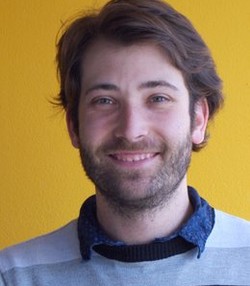In this edition, we celebrate our fascinating planet by looking into food systems, getting inspired by ancient wisdom and sustainable business initiatives, because 2021 is a year of change and hope.
Nevertheless, hope is not enough, action is required as reminded by Greta Thunberg at Davos Agenda 2021, supported by some of the most renowned climate experts.
With the arrival of the coronavirus pandemic across the world forced biodiversity on to the agenda in a way previously unseen. Despite the postponement of Cop15, there was a flurry of initiatives among the world’s leading figures on the environment as it became clear that the state of our planet has never been more urgent, but it is not too late. From communities of designers, scientists, to politicians and businessmen, there are extraordinary people working to change our relationship with nature.
Among these, an example, the panel of 25 scientists and practitioners from around the globe, coordinated by the Cambridge Conservation Initiative, who have identified emerging environmental issues and potential bright spots.
Stay curious, keep up to date, and get inspired, all in a quick read.
Follow these periodical monthly updates of tomorrow’s sustainability news today, by subscribing to the Tomorrow Times.
Energy & Environment

- Learning from the past to protect the future. Modern systems, among which food production, have often disconnected from the rhythms of the natural world. The techniques of the past bear ancestral wisdom that it would be a sin to lose. Discover the traditional planting method of 'potholes', helping Zimbabwean farmers save precious water, saving crops from droughts by keeping them hydrated for longer and other four ancient techniques that can help the planet.
- Meat Atlas 2021. Across 50 pages, this annual atlas — which is collaboratively published by the foundation Heinrich Böll, Friends of the Earth (BUND) — outlines trends and the implications of global meat production on both human and planetary health. It is time to rethink the meat supply chain. In 1960, the annual per capita global average consumption was 23 kilograms of meat. By 2018, the population had grown to 7.6 billion people and meat consumption to 46 kilograms per person annually.
- Alternative Proteins. New research prepared by the Oxford Martin School, for the World Economic Forum, found that balancing meat consumption with alternative sources of protein can lead to significant health and environmental benefits. What will be the future of meat? Some scientists are advancing 3D printed steaks and meat obtained in a lab by multiplying animal cells, several are the options, but what seems clear is that the future of meat is changing.
Business & Economy

- Holiday business can support local landscapes and wildlife. From dolphins to rewilding, 11 environment-friendly holidays for 2021. Why not enjoy a vacation immersed in nature while helping restore natural ecosystems?
- EU first digital nomad village. With work from home becoming a way of living as COVID hit the world, a digital nomad village is soon going to be a reality in the Portuguese archipelago of Madeira. A boost for the local economy and a point of reference for the new professionals with 'no fixed address' of this millennium.
- Latest fashion circular initiatives. Tommy Hilfiger is the latest big-name fashion brand to be launching a circular initiative to breathe new life into old clothes. The circular fashion veteran Patagonia now sells used clothing alongside new, a radical step, feared by many brands as it could threaten the sale of new items. Patagonia believes that re-sale is not a threat but a business opportunity.
Science, Technology & Design

- Human-made materials outweigh Earth's entire biomass. Each week, every person produce human-made matter equal to more than their body weight, a new paper published in Nature says and explained in this article: at the beginning of the twentieth century, the anthropogenic mass was equal to only 3% of global biomass; in 2020, anthropogenic mass is exceeding overall biomass in the world. Nevertheless, 2020 has shown that our diverse, beautiful world is under threat, but that there is still time to save it.
- This article is not about plastic pollution. An article about finding solutions through upstream innovation, or preventing waste from being created in the first place. Circular consumption in the linear economy is no more just a drop in the ocean.
- Self-healing solar panels. A material commonly used in solar panels has been found to repair itself when damaged - and scientists think this ability could be vital for the future of clean energy.
Urban Environment

- Visions of the house of the future. Shared home-working spaces and houses built off-site using apps connected to collaborative databases for building components, which calculate the embodied carbon in the design – these are just some of the ideas in the winning proposals for the government’s Home of 2030 competition to develop prototype “homes fit for the future”, showcasing the “best of British design”.
- Pocket-forests a weapon against climate change. Botanist Akira Miyawaki method helps to build dense, fast-growing native forests, rich in biodiversity. He has planted more than 1700 pocket-forests throughout the continent and the world.
- Stockholm helps people find a sense of purpose. COVID has shown we can be creative under pressure, Stockholm's mayor explains how a city can be a catalyst to harness people's power.
Unexpected and Intriguing

- Coffin that turns bodies into mushrooms. ‘We are nutrients, not waste’. Created by 26-year-old Bob Hendrikx, a bio-designer from the University of Delft, the Living Cocoon is made by growing mycelium around a coffin-shaped frame. A solution that considerably increases the health of the soil.
- A passion for job. Your dream job may be around the corner and more unexpected than you think. Read how 50 cups of tea a day can turn into a dream job. A story that teaches us that passions are important in life.
- Amsterdam wants to ban fossil fuel advertising. The first city in the world that wants to ban advertising from the fossil fuel industry and ads for air travel from the city. This is stated in a motion by which was passed on December 18th. It is the first political step towards a nationwide ban on fossil advertising.
Have you seen a news item suited for 'the Tomorrow Times'? Let us know and we'll consider including it in the next edition.
Previous Tomorrow Times editions
Find all Tomorrow Times editions and newsletters here.
Signup for future newsletters here.
Feb. 3, 2021

